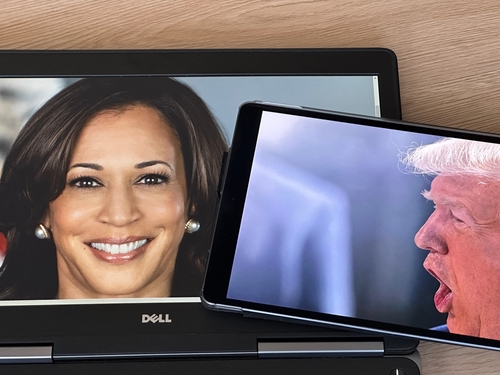Broadcasters Should Evaluate Attack Ads for Liability Concerns in the Final Weeks Before the November Election

By: David Oxenford (Broadcast Law Blog)
With less than a month until the November election, we can expect an increase in attack ads, some of which may result in cease and desist letters from the targeted candidates. These letters can heighten the risk of defamation claims against broadcasters and cable companies, especially when the ads are not directly purchased by the candidates. The use of artificial intelligence in these ads brings the possibility of even more aggressive content, raising several legal concerns beyond defamation, although that remains a key issue.
In light of what could be a particularly contentious election season, it’s important to revisit the need for broadcasters to carefully evaluate the content of attack ads, especially those from non-candidate groups.
Under Section 315 of the Communications Act, broadcasters and local cable companies are prohibited from altering or rejecting a candidate’s message, except in extreme cases where the ad violates federal criminal law or includes a false Emergency Alert System (EAS) warning. Because broadcasters cannot censor candidate ads, the Supreme Court has granted them immunity from liability for the content of those ads. However, this immunity only applies to over-the-air broadcasters and local cable companies—it does not extend to cable networks or online platforms.
Some may mistakenly believe that these protections shield broadcasters from liability for all political ads. However, broadcasters could still face potential liability for airing a non-candidate group’s ad if they know it to be false or if they continue to air it after being notified of its falsity. In 2020, President Trump’s campaign sued a Wisconsin television station over a false and defamatory PAC ad, though the case was ultimately dismissed. In the 2022 election, Utah Senate candidate Evan McMullin filed a lawsuit against a political party’s campaign committee and several local TV stations for running an ad that allegedly manipulated his remarks to suggest he called all Republicans racist. Even Roy Moore, a former Alabama Senate candidate, was allowed to proceed with a defamation lawsuit against the sponsor of an ad that he claimed falsely accused him of misconduct.
This election cycle is already showing signs of similar legal battles emerging. Broadcasters should be cautious and stay informed as the election approaches…
Featured News
Belgian Authorities Detain Multiple Individuals Over Alleged Huawei Bribery in EU Parliament
Mar 13, 2025 by
CPI
Grubhub’s Antitrust Case to Proceed in Federal Court, Second Circuit Rules
Mar 13, 2025 by
CPI
Pharma Giants Mallinckrodt and Endo to Merge in Multi-Billion-Dollar Deal
Mar 13, 2025 by
CPI
FTC Targets Meta’s Market Power, Calls Zuckerberg to Testify
Mar 13, 2025 by
CPI
French Watchdog Approves Carrefour’s Expansion, Orders Store Sell-Off
Mar 13, 2025 by
CPI
Antitrust Mix by CPI
Antitrust Chronicle® – Self-Preferencing
Feb 26, 2025 by
CPI
Platform Self-Preferencing: Focusing the Policy Debate
Feb 26, 2025 by
Michael Katz
Weaponized Opacity: Self-Preferencing in Digital Audience Measurement
Feb 26, 2025 by
Thomas Hoppner & Philipp Westerhoff
Self-Preferencing: An Economic Literature-Based Assessment Advocating a Case-By-Case Approach and Compliance Requirements
Feb 26, 2025 by
Patrice Bougette & Frederic Marty
Self-Preferencing in Adjacent Markets
Feb 26, 2025 by
Muxin Li